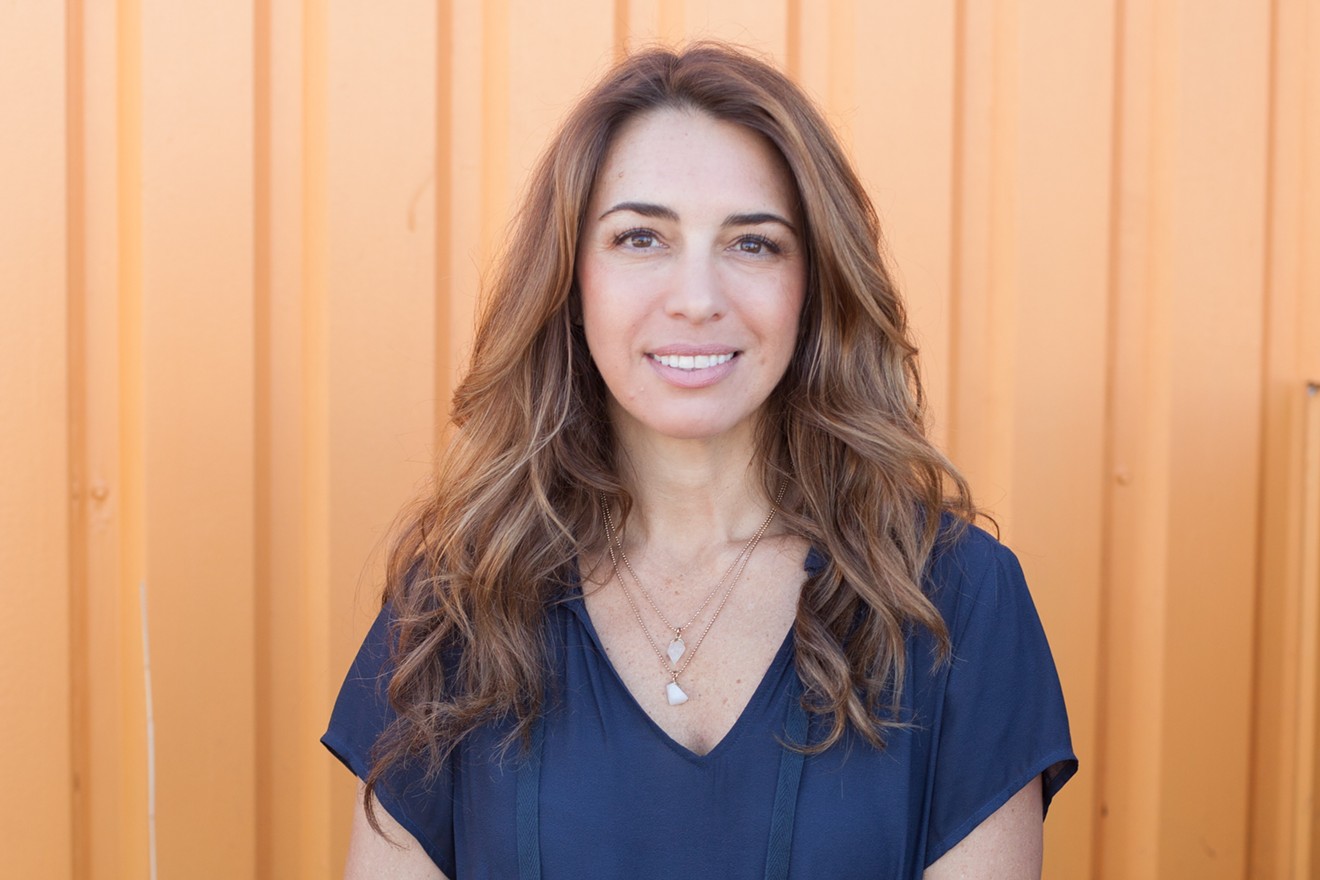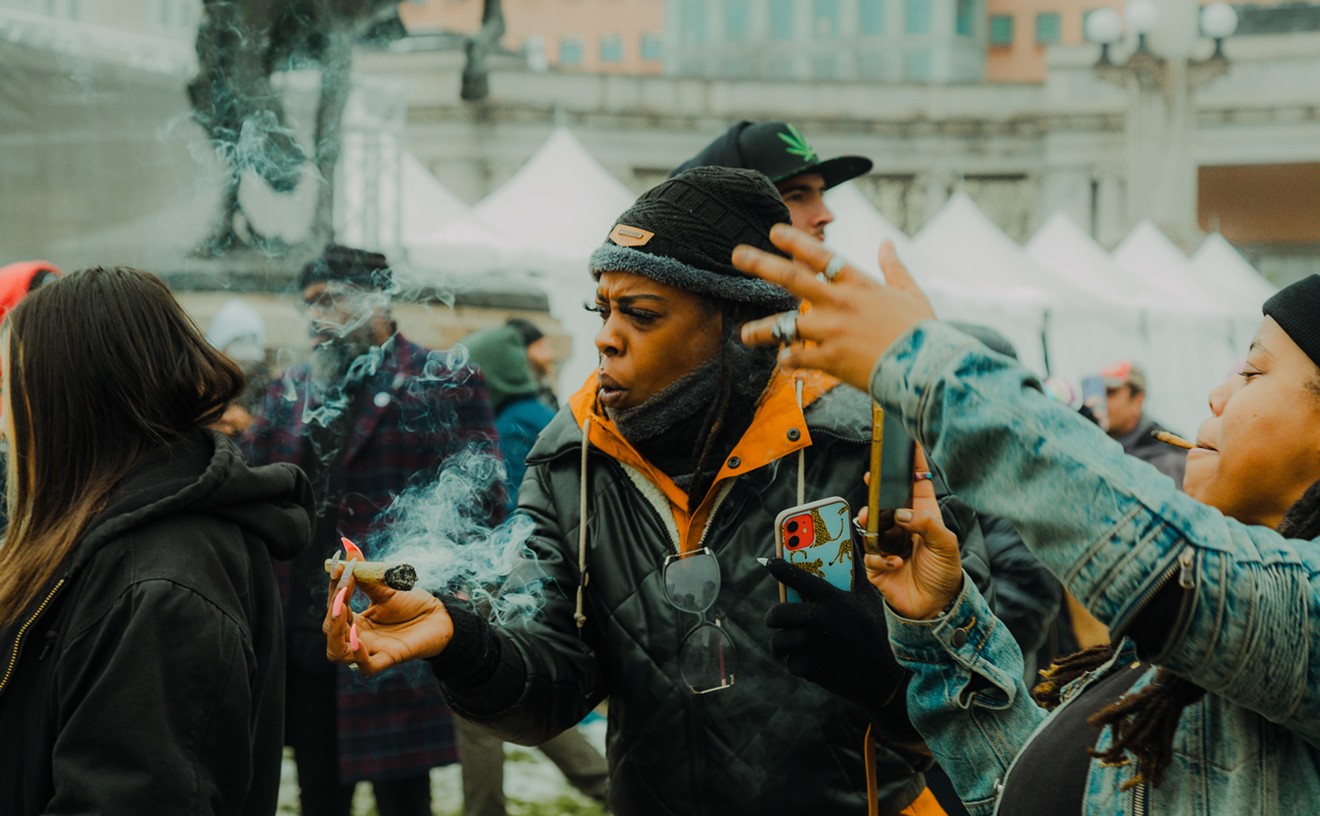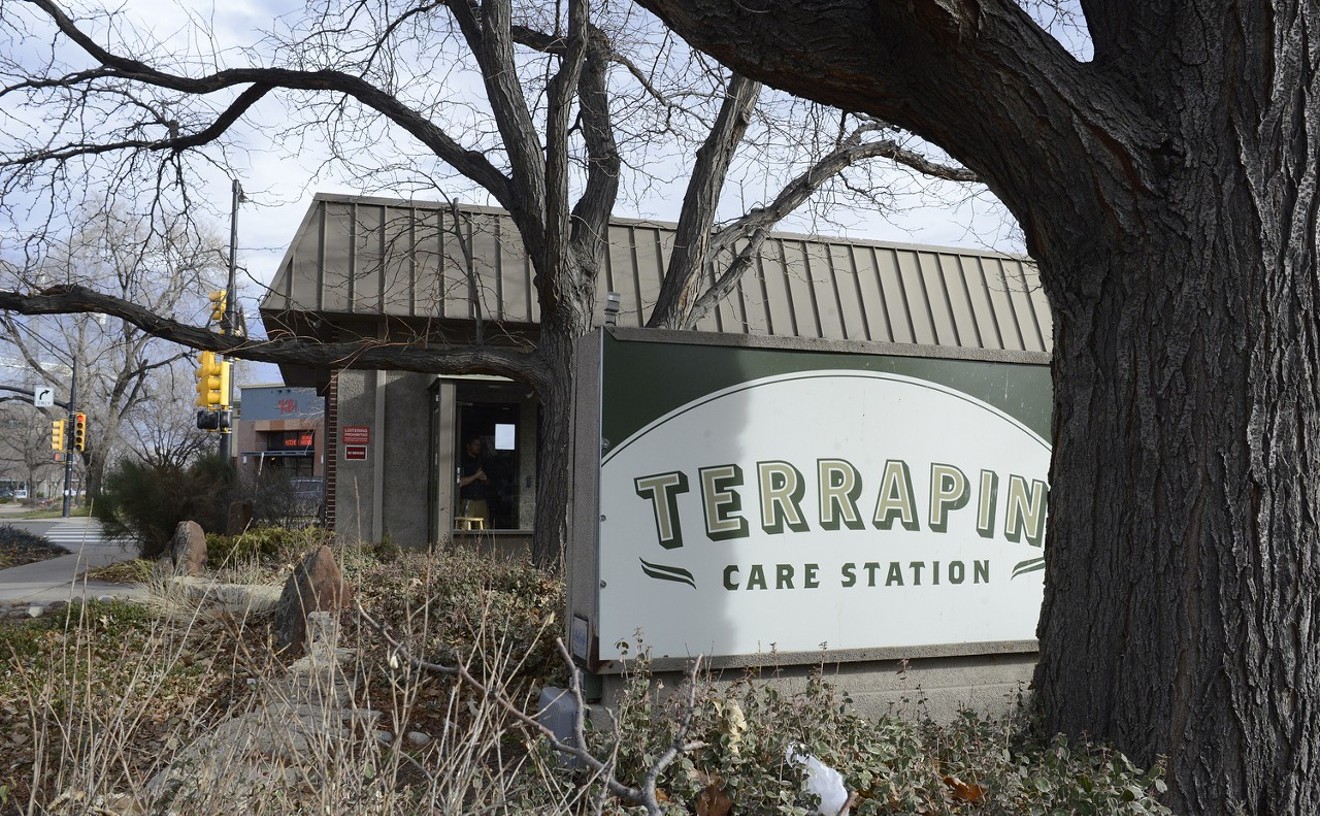We haven't hidden our admiration for L'Eagle's operation in the past, awarding it with numerous Best of Denver awards for its work in the grow. The dispensary provides some of the stankiest buds in town while advocating for clean growing practices and fighting against unsafe pesticide use. And owners Amy Andrle and her husband, John, have put their words into action, becoming the first dispensary in Denver to become Certifiably Green for its sustainable business practices.
Westword caught up with Amy Andrle in the following email interview to see what one of the Mile High's most esteemed dispensaries has been up to and what the pot power couple has planned for the future.
Westword: What challenges does a cannabis business face while trying to get designated Certifiably Green by the city?
Amy Andrle: Certifiably Green currently evaluates retail operations, not cultivation facilities. Hopefully in the near future they will be able to add grows once a data baseline — which I believe they are compiling — is established. The current Certifiably Green designation relies on five basic principles: responsible resource management, energy efficiency, water conservation, alternative transportation and general business management. Given these, there may be some protocols or operational changes (providing recycling/composting, or updating faucets and lighting fixtures) required to support a sustainable retail store. Generally, any changes made to the business will benefit the bottom line long-term.
L’Eagle is proud to be the first indoor recreational cultivation facility to achieve Clean Green certification, the national third-party certification for USDA organic standards, in Colorado. Adding sustainability to organic cultivation brings challenges respecting [growing] media (no peat), lighting (LED lights over HID, which saves power in the lighting arena as well as a significant decrease in HVAC), and integrated pest management (not spraying for things that don’t exist) all come into play. If this niche is important to the brand, the investment is well worth the results.
The biggest challenge here is not inside L’Eagle’s facility, but rather helping consumers discern quality cultivation is more than a marketing ploy, and can be verified by third-party certifiers. Consumers can challenge their dispensaries to provide them with verification. Reminding consumers they have the power of choice and that choice is more than potency — it is also health, flavor and quality of the high. Slowly, cannabis consumers are recognizing that the standards they maintain for food, coffee, eggs and meat can all be applied to cannabis. Quality above all else is responsible cultivation methods including fair trade, organic standards and sustainable methods producing a product that consumers can feel good about purchasing. To support this consumer education, I participate as a founding boardmember of the Cannabis Certification Council, a nonprofit organization that just launched the What’s In My Weed campaign, a first-ever PSA to prompt consumers to connect how they think about food to how they think about cannabis.
What challenges does an operation like L'Eagle, with a strong reputation but just one dispensary, face as consolidation increases?
In addition to quality differentiation rather than commoditization, there is the obvious drop in prices, making survival more difficult. This scenario is standard in many industries as conglomerates push out competition, utilizing their deep pockets as a mechanism to withstand budget shortfalls that smaller, less financed operations cannot survive. Every day at L’Eagle, we fight against the commoditization of cannabis and cannabis products; Monsanto and McDonald’s did it to food, Phillip Morris and RJ Reynolds to big tobacco, and Big Pharma to medicine. While cannabis is the furthest thing from a commodity, by definition, removing the identity from superior products bridges the gap quickest. Big business wants to process the plant (tinctures, vape cartridges, etc.) so there are fewer recognizable traits with respect to quality. This shift is evident in states coming online (Florida and New York, where bud is actually illegal — under the guise that it is “safer”). Our best weapon against this trend is knowledge, and honestly, L’Eagle will have to have a much bigger footprint in Colorado if we are to succeed in this war. How can growers at home deal with pests or mildew without using unsafe or toxic techniques?
Depending, of course, on where they are cultivating — indoors or outside — it would vary. Generally speaking, the best bet is to start with hearty strains and good genetics. One can grow from seed, or an easier option is to acquire clones, but buyer beware that no systemic pesticides are present, and check the credentials of your clone provider. The best bet for safe cultivation is to use products that have an OMRI (Organic Materials Review Institute) rating, as these are the healthiest when used properly. Always avoid spraying anything on the buds.
Your strain menu is pretty consistent. How does L'Eagle go about choosing its genetics? What do you look for in strains?
We have had the same thirty strains for years because, in aggregate, they complete the full spectrum of smells, flavors and potencies. We rotate out a handful periodically (new additions in fall/winter 2018), but we do so cautiously, and only after a few generations. Consistency is key to growing and our clients' satisfaction. We have also worked with certain strains long enough to be able to predict their traits, which is helpful in cultivating in an organic environment. We push flower and the PAX vaporizer, because it allows the user a much truer flavor experience versus combusting, and our strain selections are based around this. That includes engaging sativas, powerful hybrids and relaxing indicas. We pride ourselves on making our best strains available every day, not rotating them out for trial runs of new genetics.
L'Eagle was slow to jump into the solvent concentrate arena. How hard is it to keep up with industry trends while keeping a quality standard in place?
We were, and the reason was primarily safety and purity. Finding willing partners to purge residual solvents was tough because of the reduced yield and darkened end product. Consistency is tough, because “who’s best” [at extraction] shifts regularly. We do our best to stay on top of this and keep only the finest producers on our shelves. Convenience — vape pens made with butane and CO2 — is here to stay, and we carry an array of raw, unfiltered CO2 pens while still avoiding anything with residual butane and PG fluid.
What's next for L'Eagle? Any plans or goals that you're excited about?
L’Eagle is enthusiastic about expanding our brand via cultivation consulting. Our vertically integrated retail operation does not allow for much, if any, wholesale flower or rosin — two items that multiple stores in Denver and Colorado would like to offer to their clientele. We trust that by the end of 2018, L’Eagle products will be offered at more locations than at just our retail store at Sixth Avenue and I-25. We realize there is demand in Aurora, Boulder and Golden, and are striving to fulfill the demand.
Have a suggestion for a future interview subject? Send it to [email protected].
[
{
"name": "Air - MediumRectangle - Inline Content - Mobile Display Size",
"component": "12017618",
"insertPoint": "2",
"requiredCountToDisplay": "2"
},{
"name": "Editor Picks",
"component": "17242653",
"insertPoint": "4",
"requiredCountToDisplay": "1"
},{
"name": "Inline Links",
"component": "18838239",
"insertPoint": "8th",
"startingPoint": 8,
"requiredCountToDisplay": "7",
"maxInsertions": 25
},{
"name": "Air - MediumRectangle - Combo - Inline Content",
"component": "17261320",
"insertPoint": "8th",
"startingPoint": 8,
"requiredCountToDisplay": "7",
"maxInsertions": 25
},{
"name": "Inline Links",
"component": "18838239",
"insertPoint": "8th",
"startingPoint": 12,
"requiredCountToDisplay": "11",
"maxInsertions": 25
},{
"name": "Air - Leaderboard Tower - Combo - Inline Content",
"component": "17261321",
"insertPoint": "8th",
"startingPoint": 12,
"requiredCountToDisplay": "11",
"maxInsertions": 25
}
]












